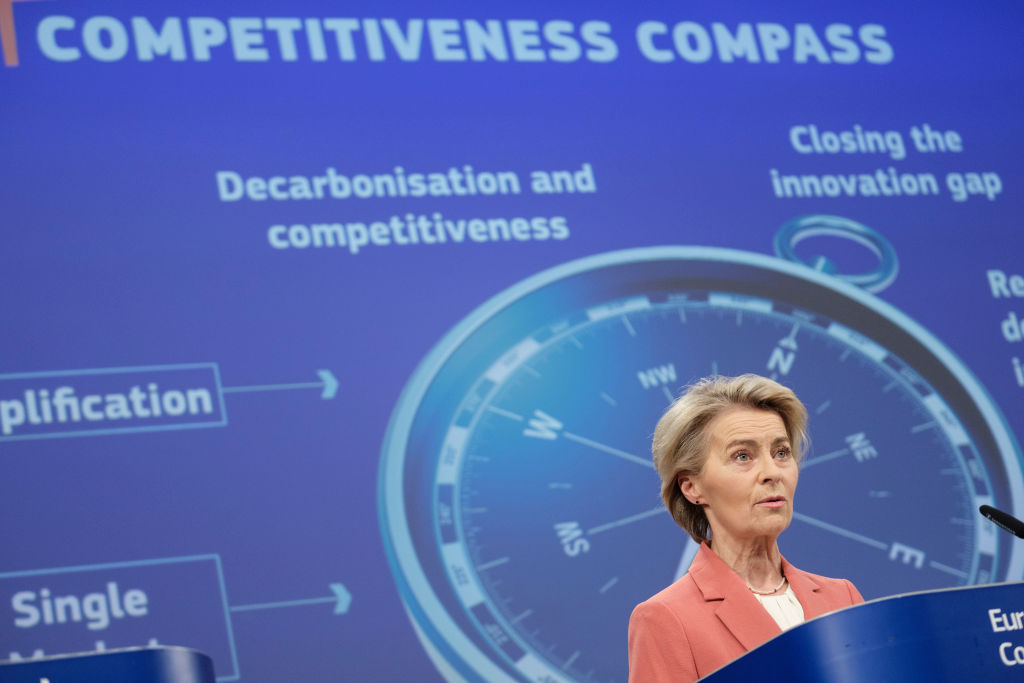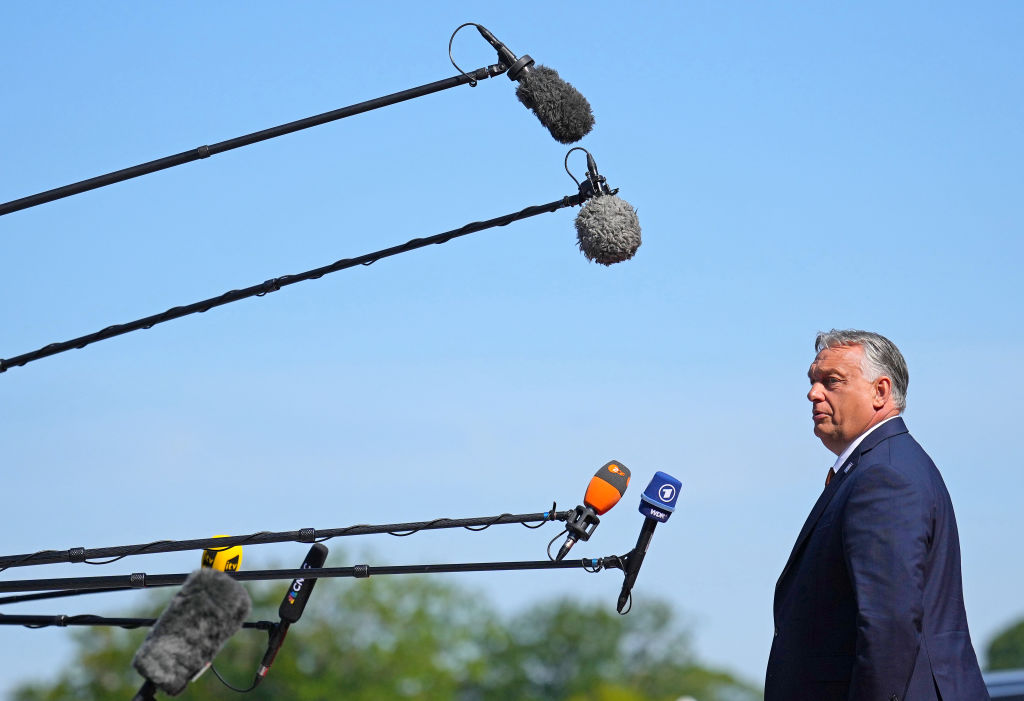General relief in Brussels after the unexpected victory of Nicușor Dan in Romania, against George Simion, his opponent who had led the first round by a wide margin. While the final result is clear, the election remains tainted by an indelible stain: This vote should never have taken place, as the November election was annulled for entirely fictitious and arbitrary reasons. In other words, the most serious electoral scandal in the history of European integration.
Those who justified this electoral coup by invoking a far-fetched Russian interference via TikTok—without the slightest evidence—no longer dared to repeat their lies when Simion climbed to 40 per cent of the vote in the first round of the second election. That figure alone dismantles the grotesque and ridiculous pretext on which a presidential vote was simply annulled. Dan’s presidency will therefore remain marked by an original sin: Had the Romanians’ initial vote been respected, he would never have become president—and Călin Georgescu would likely be in his place.
Some point to foreign interference, and Pavel Durov, CEO of Telegram, denounced pressure from French intelligence to censor certain voices—and is ready to repeat this claim before a judge. Some accuse the EU, without providing evidence, of having directly orchestrated the manoeuvre, which seems unlikely. What is indisputable, however, is that it tolerated this blatant democratic breach with deafening silence and bombproof cynicism. While Brussels relentlessly targeted the Georgian government over elections won by a 14-point margin, it uttered not a word—not a single statement—about an electoral coup in one of its own Member States. In a final display of bad faith, the Commission launched a monitoring procedure against TikTok under the Digital Services Act.
Astounding—though on closer inspection, this reluctance to accept the verdict of the ballot box when voters don’t choose “correctly” is nothing new for the EU, it’s more of a Pavlovian reflex. After the arduous ratifications of the Maastricht, Amsterdam, and Nice treaties, and twenty years after the French and Dutch referendums against the European Constitution (a popular verdict completely ignored), the EU continues undeterred. Or, to be more precise, it no longer hesitates to throw its full weight—including financial influence—into national elections in order to tip the scales in its favour.
To date, the most blatant case remains the 2023 parliamentary elections in Poland, where the campaign was overshadowed by €137 billion in EU funds withheld from the outgoing government—funds that were miraculously released to Warsaw three months after Donald Tusk’s election, based solely on vague promises. In the aftermath, Tusk trampled the rule of law to such an extent that even the US administration issued warnings. Meanwhile, Brussels applauded the “restoration of the rule of law” in Poland, closed the Article 7 infringement procedure—initiated in 2017—within six months, and turned a blind eye to all of its protégé’s violations, with the same cynicism shown in Romania.
Georgia is another textbook case of electoral interference. This candidate country, while following Brussels’ roadmap, had the audacity not to forget its national interests or the mandate of its citizens. It refused to impose sanctions on Russia—sanctions that would have plunged this small country into economic turmoil. It passed a law protecting the traditional family and (even worse!) demanded minimal transparency from advocacy groups receiving foreign funding. The result: the EU suspended accession talks ahead of the elections, and after a clear and decisive outcome, the European Parliament called for new elections and warmly welcomed Salome Zourabichvili—the outgoing president—who came to Brussels to promote a coup aimed at extending her mandate.
Let’s not forget the ousting of Berlusconi at the height of the euro crisis, Ursula von der Leyen’s revealing slip just before Giorgia Meloni’s victory in 2022, or Thierry Breton’s thunderous statement against the AfD. All of this is unfolding in a climate of collective political hysteria following Trump’s victory, where the EU budget is deliberately being used for ideological purposes.
This raises a pressing question: what will be the next battleground in this barely disguised ideological war? The Czech Republic, where the maverick Babiš is the frontrunner for the legislative elections? Perhaps. But all eyes are already turning toward next April’s elections in Hungary—the long-awaited opportunity for Brussels to claim the scalp of its public enemy number one: Viktor Orbán. The clash between today’s EU and its nemesis is in full swing: Article 7 proceedings, opposition to the war, the arbitrary exclusion of Hungarian universities from Erasmus and Horizon, a political cordon sanitaire, exorbitant fines, and the confiscation of billions of euros, to name just a few of the open fronts. Is the EU—and a majority of its member governments—prepared to tolerate the affront of a fourth consecutive term for the Hungarian Prime Minister? Will Hungarians be allowed to choose their next government without interference, or is Brussels prepared to bring them back into line using its full political and financial arsenal? We’ll find out in April 2026—but given the EU’s track record on elections, doubts are more than justified.





UK elections are the last warning for pedlars of political business as usual